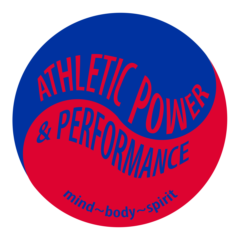You will hear many say, learn from your mistakes. As an athlete, this includes learning from your losses in competition. But what does that even mean? And how can you set aside the frustration of losing and make that a useful tool for you to then succeed?

The athletic journey has many ups and downs that can play with the athlete’s mental and emotional stability within their sport. The athlete can feel like they are at the mercy of these highs and lows. In the athletic journey, there are often pivotal moments that will make or break an athlete. The effects of these moments are often not realized right then. It’s the many unconscious decisions and unresolved feelings that often come from not properly addressing these pivotal moments that can alter or completely change the trajectory of the direction the athlete heads in. It matters less if this moment is positive or negative. What matters more is how this moment is handled and dealt with. I was a victim of this very phenomenon when I played high school baseball. The result of me not recognizing this pivotal moment was that I ended up becoming mental blocked, which changed my trajectory in my sport and left me burning out of the sport I loved. As a result, I quit which left me purposeless, lost and empty.
Let me give some context of how and why I developed this system:
I’m going to discuss just one of the many key steps I use to help aspiring athletes overcome the mental and emotional challenges that you will face as in your athletic journey. Before I go into this step for you to make your pivotal breakthroughs, let me share how I came up with this system. This will allow you to better understand the importance of taking on this task of reliving your athletic losses and when you do this right, this will help you become a more complete and well rounded athlete and person.
Here is the story of my pivotal moment from back when I was playing baseball…

It was the final weekend of my summer baseball season and we were in the position to win the championship. Our team was the first place team and we were playing the second place team at their ballpark in a doubleheader. We only needed to win one of the two games to secure the championship. I was the starting pitcher of the first game and had one of my worst performances allowing the other team to blow us out. This left us in the situation that the team who won the second game won the championship.
We got ourselves into a much better position in the second game. We were leading by 3 runs in the final inning. However, our pitcher had allowed the bases loaded with zero outs and the current batter had three balls and no strikes. Our manager called timeout to go to the mound and I was playing in right field at the time. As my manager was walking to the mound, I started saying in a quiet but determined voice, “put me in, put me in!” I had no reason to think my manager should or would put me in considering my earlier performance in the first game. But he looked my way and called for me to come in. At this point, I’m feeling like I’m throwing the ball better than I ever had in my life! My pitches are doing everything I’m commanding of them. After my warmup, I’m facing the same situation of bases loaded with zero outs and the batter I’m facing had three balls and no strikes and we are only up by three runs. I fire three straight pitches, all strikes and secure the first out! The next batter comes up and I quickly repeat the same process of three straight strikes. This puts us into position that we only need one more out and we win the championship. But now, I’m facing their best hitter (probably the best hitter in the league). He was a left handed hitter and I’m a right handed pitcher. My best pitch at the time was my slider. My catcher gives me the signal for a slider low and outside. I throw that pitch and the batter doesn’t even move his bat as he looks at the pitch. The pitch does exactly what I command: a fast pitch with a sharp break at the end to catch the outside part of the plate STRIKE ONE!!!. I’m two pitches away from securing the championship that our team has worked so hard to achieve! I get the signal for the next pitch, another slider and my confidence is high. I deliver this next pitch in the same spot. Again, this pitch is fast and it breaks hard the same way. However, this time the batter swings his bat and CRACK, he connects and takes that pitch over the left/center field fence for a championship winning grand slam home run.
I don’t recall what I felt like right after that happened. In fact, I don’t remember feeling particularly down or shaken from the experience. In fact, it seemed like it would have been nice if we would have won that championship but life was going on.

It was seven months later when my next season of baseball started. This was my senior year of high school and my expectations were high for this season. That championship game was not anywhere in my mind (at least consciously). What I didn’t realize is that me getting past that loss without dealing with it would have far greater consequences than that one single loss. In four short months that pivotal moment would lead me to make the decision to quit my beloved sport of baseball because it seemed I lost my control on the mound, both with my pitches and my anger. And my best pitch, my slider, I lost the ability to throw it effectively that entire season. I even struggled with the act of making simple throws such as throwing the ball over to first base. These throws became stressful, whether during warmups, throwing someone out or throwing to first base in order to keep the base runners honest. I had developed a fear of losing accuracy, even with my easy throws.
I did not discover why or even connected the dots from my loss during the championship to how much it really affected me. To get past this effectively, I needed to understand what had happened and develop a plan to overcome this, neither of which happened. As a result, my senior year of high school led me to question my deepest passion and if I was even good enough anymore on the high school level, let alone moving up to the next level and beyond. This failure, the frustration and the state of mental and emotional distress I was in led me to make the decision to quit baseball. This decision left me in a tailspin as I didn’t have any sort of backup plan. The major result of me being directionless was I ate in excess which led me to gain a lot of weight. I gained nearly 45 pounds in three months. This left me even more mentally and emotionally distressed and this decreased my self-esteem.
How do you analyze your performance so that you can make your pivotal breakthroughs?

Start by analyzing your performances. Look for three categories: areas you did well, areas that you can improve upon and areas that you surprised yourself, teammates, coaches and/or parents. With the areas that you did well and areas that you surprised yourself and/or others, you are looking to find foundational blocks that you can build upon. Write (or type) these areas you did well out into a list, as many as you can find. Also, list out the areas that you can improve upon. From your list of areas that you did well, pick one that you want to further develop. With your list of areas to improve upon, pick one area from this list to focus on getting better. Now you have two areas that you are focused on to improve your overall game. If this is too difficult to focus your attention on both, pick one of these to devote your attention to.
Tip: The area you have the most to improve upon will help you raise your game the most. If you have an area that you are weak in, and you are able to improve that area even to an okay level, your game will improve significantly!
The next time you compete after you have had some time to improve the area(s) that you are focused on, judge how your efforts of improvement have changed your game. If you see improvement, you know you’re on the right track. If you don’t see improvement, analyze if you have addressed the right area(s) and you have applied that right level of effort. After you have experienced improvements, you want to analyze your next competition. Analyze this competition with the above parameters to find new areas to improve upon. This process is a non-stop goldmine of lessons that can be applied to take your game to the highest levels of your skills and abilities. Make sure to give yourself enough time to make improvements in the areas that you are working on. If you find yourself constantly adding new areas of your game to improve without seeing improvements in the areas that you previously were working on, you are changing too rapidly to make lasting improvement to your overall game.
If you are maintaining the process of analyzing your competitions, you may not find specific pivotal moments such as mine. The reason is, if you analyze your competitions effectively on a regular bases, you virtually eliminate the chances of having a moment like the one I went through to adversely alter your athletic journey. My story is a pivotal moment that changed my entire trajectory for the worse, which I discovered had such a massive effect on my future in baseball due to not having a process to analyze my competition.
What’s next after implementing this process to your game?

This step is just one of the many tools I have developed in my program Athlete Unleashed to help you the athlete have success throughout your athletic journey. My program gets to the heart of what you need as an athlete to define what being successful within your athletic journey and creating the steps and processes to realize that success. I have three ways to take part in the Athlete Unleashed program: my book, the online program and coaching.
The entire Athlete Unleashed program addresses the specific steps needed to become successful during the athletic journey. These steps include:
- Help you discover and define your passion.
- Guide you to develop the right mindset to overcome the various challenges that will arise along your athletic journey.
- Put you into position to maximize your performance by creating a balance between the effort and recovery you put into your athletic journey.
- Aid you in finding the right foods that improves your ability to perform at your highest levels.
- Lead you to design a movement program that improves your performance while reducing injury risk.
- Direct you to implement a complete program for an entire year that applies all of the above steps in a cohesive and easy to follow plan.
My book: Athlete Unleashed sets up the foundation for you to have a successful athletic journey. This is the starting point which gives you the athlete an overview of a plan to follow.
My online program: This is an extension of the book and allows you to take a deeper dive into the key steps with deeper explanations. This includes a workbook for each section that further guides you through each step of the program. This is for the athlete that is ready for more structure so that you can take your game to the next level.
My coaching program: This is for the athlete who is looking for a specific result in the shortest amount of time. This step is for the athlete that is ready and serious about taking your game to the highest level possible by maximizing your skills and abilities. We work together to get very specific on what we need to address, the length of time we expect the outcome to take and we develop a clear end goal.
